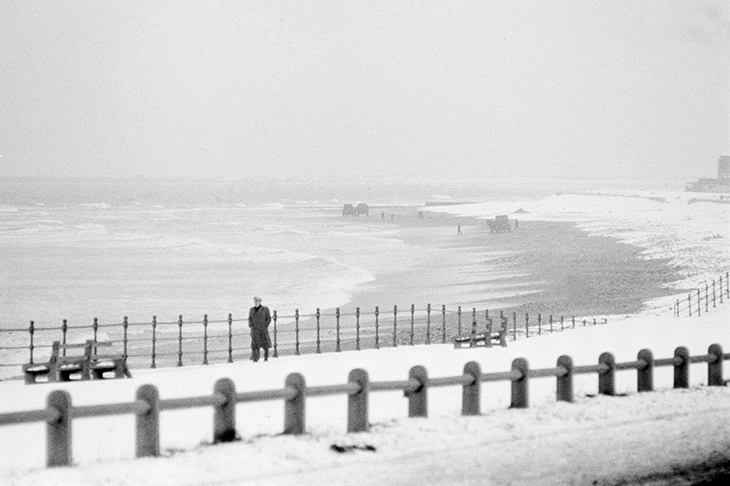Like this author, I was happily snowbound at a beloved grandparent’s house during the big freeze that began on Boxing Day 1962 and ended in early March the following year. I was in Sussex, she at Sissinghurst in Kent. Juliet Nicolson, then eight, describes the morning of 27 December: ‘The snow was still there, turning the landmarks of the garden — the walls, lawns, statues, urns — into something unrecognisable but unified. The sight was beautiful.’ Her grandmother, Vita Sackville-West, had died in June, leaving the house to Nigel Nicolson, Juliet’s father. It was his family’s first Christmas there.
In The Perfect Summer: England 1911 Nicolson wrote of an earlier period on the cusp of social change. Perhaps the changes she describes in Frostquake would have happened anyway, but she imaginatively uses that ten-week freeze to highlight many of Britain’s then moribund laws and attitudes and their imminent collapse: the criminalisation of homosexuality, the acceptance of casual racism — landlords stating ‘No blacks, no Irish, no dogs’ — and the reluctance of the press to expose the misdeeds of the powerful.
Any hint of homosexuality could shatter a career. On 6 December 1962, Wilfred Brambell, the star of Steptoe and Son, appeared at West London Magistrates Court for ‘smiling’ at another man through the window of a public urinal. In October, John Vassall, a foreign office clerk who’d worked in the British Embassy in Moscow, was imprisoned for 18 years ‘for spilling classified beans after being blackmailed with compromising photographs’. (The Sunday Mirror later published tips on ‘how to spot a homo’: he would have ‘an over-consuming interest in youths’ and might ‘wear silk shirts and sit up at chichi bars with full-bosomed ladies’.) On 20 December, Norman Josiffe (Scott) went to Chelsea police station to confess his ‘horrible affair’ with Jeremy Thorpe, the Liberal MP.







Comments
Join the debate for just £1 a month
Be part of the conversation with other Spectator readers by getting your first three months for £3.
UNLOCK ACCESS Just £1 a monthAlready a subscriber? Log in